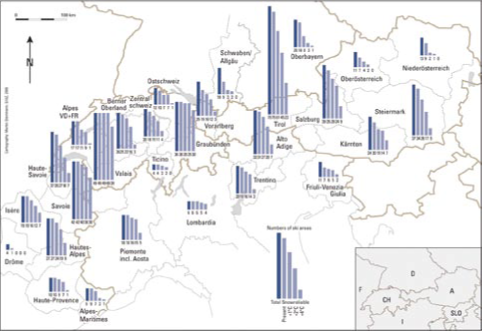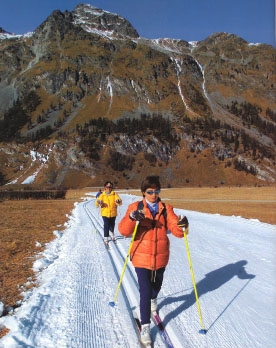 |
|
|
|
|
|
|
Tourism is of increasing economic importance in many mountain regions. For example, in the Pyrenees the local economy has been fundamentally altered by the progressive replacement of agricultural activities by the tourist industry in recent decades. Climate change may directly affect the tourist destination (e.g. less snow reliability, higher risk of rock falls), but also change the tourist market by increasing or decreasing the attractiveness of mountains as tourist destinations. |
|
Warmer temperatures in summer probably will increase the attractiveness of mountain regions as destination for summer holidays. For example, the warm summer of 2003 attracted more people than usual to high altitudes in Switzerland.
On the other hand, glacier retreat and a higher risk of hazards like rock falls and debris flows may negatively impact the attractiveness of the alpine environment in the long run. |
|
Winter tourism, especially ski tourism, is economically much more important than summer tourism. Many Alpine towns and villages heavily depend on snow, because the share of winter tourism in their economy ranges up to 90%. Higher temperature with an upward shifting snow line and a shorter snow season will be a challenge for many regions. 1 - Regional number of skiing areas with natural snow reliability today (dark blue) and under different future climate scenarios of 1°C, 2°C and 4°C temperature increase (from Abegg 2009) One possibility to respond to a lower snow cover is to increase artificial snow-making. Yet, this is limited byclimate, costs for installation, operation and maintenance, water availability, and local regulations. Even regions at high altitudes may experience a reduction in snow tourism if winter ambience is missing in the lowlands and big cities. |
2 - Artificial snowing may prolong the skiing season (photo: B. Abegg) |
13 August 2018 |
||
| |
||

